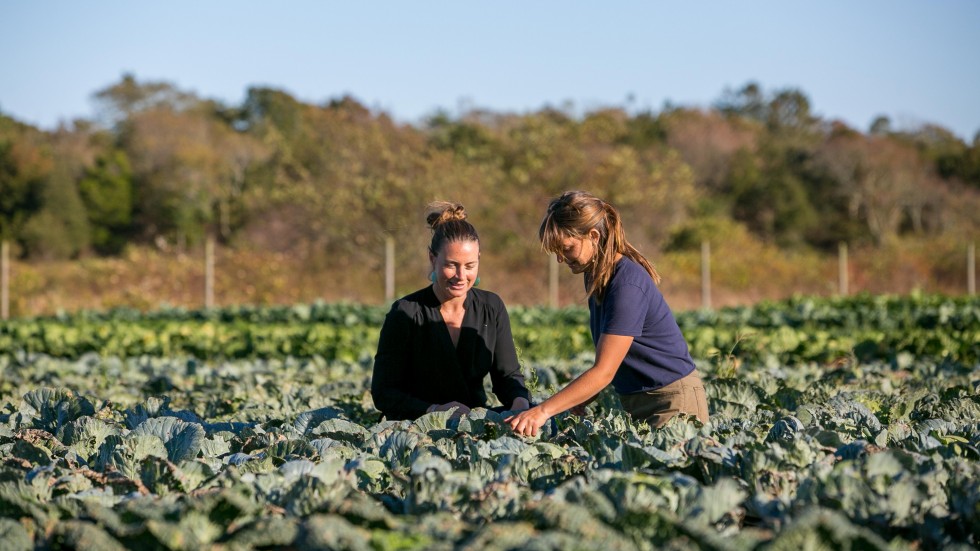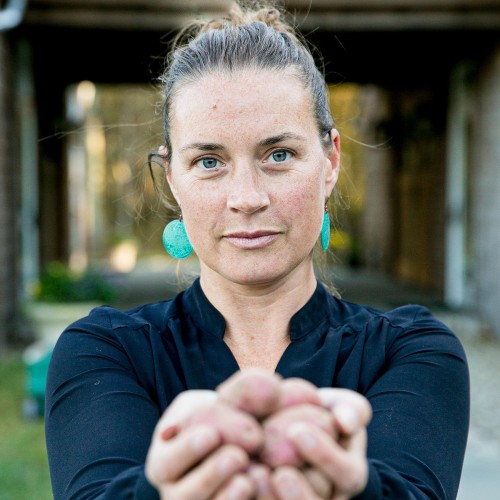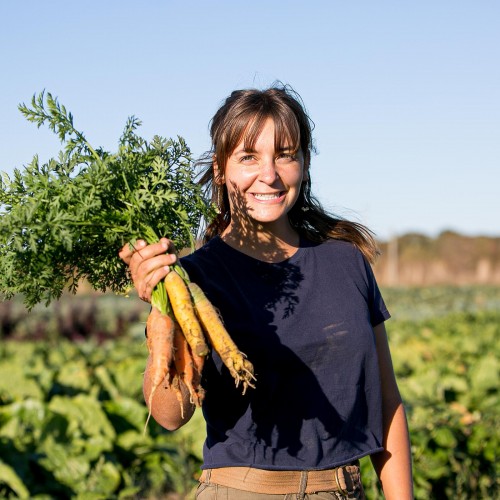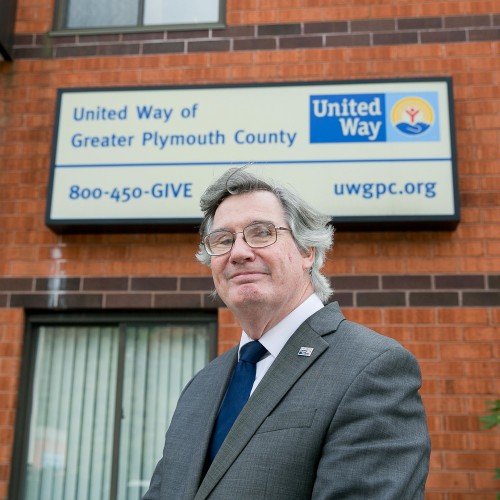The Farm at Stonehill
Since its inception, students and staff who work at the 1.5 acre farm have grown and distributed over 95,000 pounds of fresh organic produce, thanks to relationships with partner organizations—the Easton Food Pantry, the David Jon Louison Family Center of the Old Colony YMCA, My Brother’s Keeper, Father Bill’s and MainSpring, as well as the Brockton Neighborhood Health Center (BNHC), where together they operate a Mobile Market.
Farm Director and Educator Bridget Lawrence-Meigs estimates that the produce reaches the tables of about 400 people each week during the growing season—people who may not otherwise have access to locally and organically grown food.
During the pandemic, the number of families in need has increased dramatically. “COVID-19 has shed light on how important our food producers are and has inspired people to think about where their food comes from,” says Lawrence-Meigs. “It’s my hope that these interests will deepen and more of us will start to ask important questions about the food that nourishes us—how it was grown, who grew it, how many resources were used to transport it from field to plate and how we can all make choices each day to support a food system that is more just, fair, equitable, humane and sustainable.”
In addition to growing food, The Farm serves as a living classroom for students of all majors who volunteer, intern or take classes there. “They learn about the environmental, social and economic issues connected to our food system and how they can help support the health of the planet and all people by working to create lasting solutions,” explains Lawrence-Meigs.
Celia Dolan ’19 is one of a number of student volunteers who have continued to work on food justice issues after graduation—first as the assistant manager at The Farm and now as a full-time associate with My Brother’s Keeper, where she delivers food and furniture to families in need.
“Each day, I am reminded of something I learned at The Farm, especially now with the increased need for food access,” says Dolan. “Food touches so many aspects of people’s lives, from their health to their ability to focus in school to racial issues—it is central to life and wellness.”




